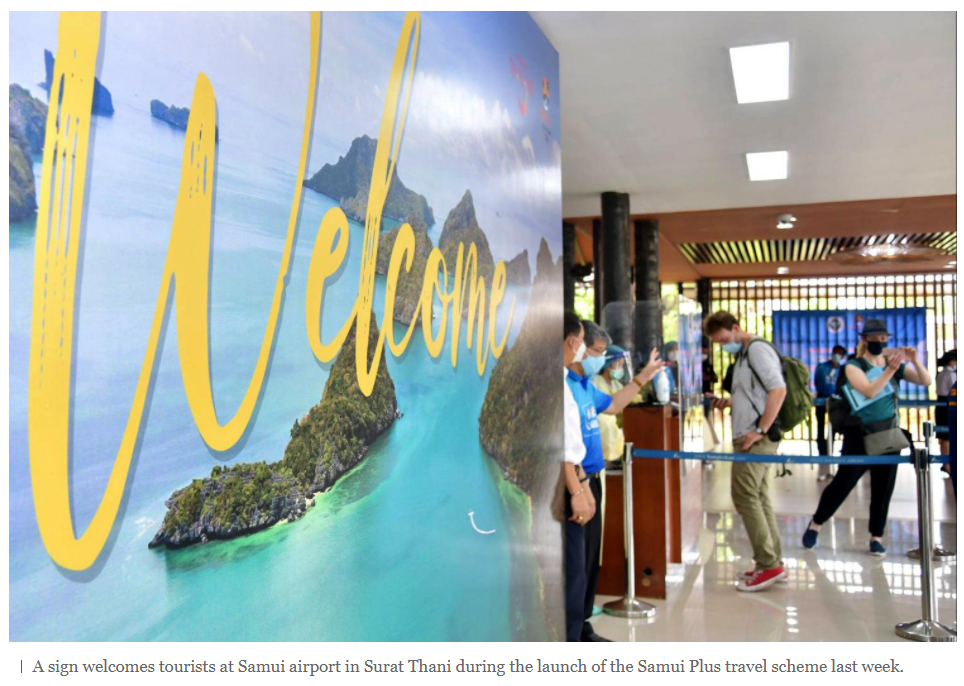Thailand: New Phuket rule passes
Foreign visitors participating in the Phuket sandbox scheme will be allowed to visit other tourist spots after seven days starting from Aug 1.
Thanakorn Wangboonkongchana, spokesman for the Centre for Economic Situation Administration (CESA), said the centre approved the move on Thursday.
The other tourist spots are: Koh Samui, Koh Phangan and Koh Tao in Surat Thani; Koh Phi Phi, Koh Ngai and Railay Bay in Krabi; and Khao Lak, Koh Yao Yai and Koh Yao Noi in Phangnga.
According to Mr Thanakorn, the governors of the three provinces are required to work with the private sector and civil services to seek cooperation from people living in those areas.
The Tourism Authority of Thailand (TAT) is expected to propose additional tourism spots to be reopened later for international tourists, he said.
TAT reported on Thursday the Phuket sandbox recorded 9,358 foreign visitors between July 1-21, while room reservations between July and September tallied 244,703 room nights, generating 534 million baht.
In a related development, CESA ordered relevant agencies to speed up settling a proposed 17% personal income tax on local earnings for foreign investors and plans to allow rich foreigners to enjoy long-stay visas.
On June 4, CESA approved a scheme to offer long-stay visas to four groups of foreigners: rich global citizens, wealthy retirees, rich professionals working in Thailand, and highly skilled professionals. These groups are entitled to a visa of up to 10 years and have the ability to own land and property.
However, a source close to the Finance Ministry who requested anonymity said the ministry voiced opposition to the proposed 17% tax rate on local earnings, claiming such a tax cut will affect the government’s revenue collection.
Of the four groups, “rich global citizens” have no age restrictions, but this group is required to invest at least US$500,000 (16.4 million baht) in government bonds, property or foreign direct investment. They must have at least $80,000 in income over the last two years and $1 million in assets.
Meanwhile, wealthy retirees must be at least 50 and have an annual income of $40,000, in addition to investing $250,000 in government bonds or real estate.
Professionals interested in working from Thailand includes remote work or employees of large companies that are close to retirement. They must have $40,000 per year in income with an educational background of at least a master’s degree or higher, or rights in intellectual property, and five years experience in research.
Experts in digital services must work for SET-listed companies or work for at least three years in private companies that have earnings of more than $50 million a year. There is no age limit for skilled professionals, though they must work in target industries, or be academic experts in universities or state agencies.
Source: https://www.bangkokpost.com/business/2153291/new-phuket-rule-passes


 English
English




